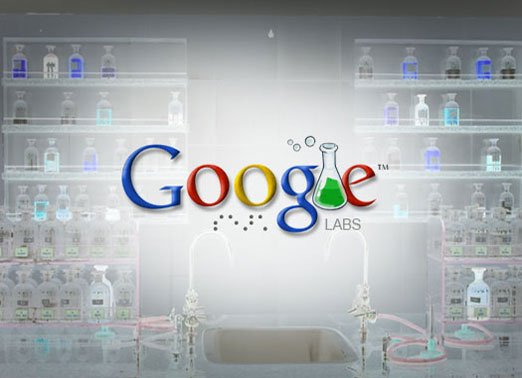 Yesterday Google announced it would be pulling the plug on Google Labs. According to its blog, Google wants to spend more time developing and focusing on specific products rather than spreading itself too thin across Labs’ various experiments.
Yesterday Google announced it would be pulling the plug on Google Labs. According to its blog, Google wants to spend more time developing and focusing on specific products rather than spreading itself too thin across Labs’ various experiments.
This won’t mess with Google’s “20 Percent Time Program,” which allows the team to give 20-percent of their time to side projects of their choosing. But it does mean saying goodbye to the development of a good many of the fun features we’ve gotten to try out in Labs, and puts the kibosh on seeing a wealth of similar innovations surface since Google will be tightening its focus. Here’s a look at some of the amusing, innovative, and imaginative creations we have Google Labs to thank for.
 Google X
Google X
Unfortunately all you’ll find at the once-active Google X site is a 404 error (but at least it’s a clever one). Google X is notable mostly for its mystery: It was introduced in 2005 and existed for a mere day (although you can take a look at it via various mirrors, including this one). It was accessible via Labs and would take you to a typical Google Search bar that also included various icons for different services lined up in a row – similarly to the Apple operating systems’ dock.
Google was anything but sly about this, admitting on the soon-defunct Google X page that “Roses are red. Violets are blue. OS X rocks. Homage to you.” Most guessed that X was pulled because of the threat of patent litigation, but the short-lived project lives on in our hearts and minds – possibly even only because it was perhaps the first and last time we’ll ever hear Google say something nice about Apple.
Google Docs
Google Docs has become the savior of every Windows Office-less schlub and penny-pinching college kid out there. The free, online word processor was officially introduced to Google Apps in 2007 after a series of acquisitions and product mergers. It’s grown from more than just a source for text documenting and includes access to creating spreadsheets, drawings, and presentations. It’s a hub for collecting and sharing documents in a group via the cloud as well.
Google Maps
It’s difficult to determine what Labs project has panned out best for Google, but Maps is arguably the winner. The service is the GPS application of choice for various platforms and integrated services like Google Transit, Places, and Street View have made it a tool some would literally be lost without (of course, Street View’s gotten Google in plenty of hot water as well).
It was introduced in 2005 and since has gone on to be integrated into Android, iOS, Windows Mobile, Nokia, Symbian, BlackBerry, and Palm products.
 Google Goggles
Google Goggles
Google Goggles debuted in 2009 and gave Android users a photo-friendly way to use Google Search. By taking a picture with the Android application, Google would then search for information about it. Logos, bar codes, business cards, book, and famous landmarks yield best results for Goggles, and the service has become more and more sophisticated. Google most recently partnered this technology with the Getty Museum to give users more information about the artwork.
Google Mars
As if Google Earth weren’t enough, the Internet titan decided to also take over Mars. Google Mars surfaced in 2006 and took a map of the planet published in 1895 and wrapped its Google Earth technology around it – of course it’s also had the help of NASA researchers. The application has had the attention of science enthusiasts since it launched, and just last month one man meticulously combing over the images claimed to have found a base on the planet.
Art Project
This is a newer addition to the Google Labs family and was introduced earlier this year. And while this particular tool might not be the household name Maps or Docs is, it’s a great example of Google putting its technology and power to a creative use. Art Project takes Google’s Street View application to some of the world’s most famous museums and gives viewers a chance to digitally explore their art.

Google Suggest
It’s hard to think of a time without Google Suggest, but Labs was its birthplace way back in 2004. It has since graduated to become one of the most crucial cogs in the Google Search machine. As we all now know, Suggest offers to fill in the rest of your query in real time as you type. Think about it: We’d become so close to Google that it could literally finish our sentences. That’s real love.




